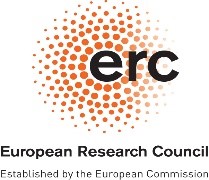Received:
2019-07-16 | Accepted:
2019-09-15 | Published:
2019-12-15
Title
Regional and product profile of post-industrial services in the economy of Kazakhstan
Abstract
The article examines the post-industrial services sector in the economy of Kazakhstan, the state and dynamics of which is a characteristic feature of the modern techno-technological structure in the post-industrial countries of the world. The sector includes information and communication, business and professional services. The authors study the regional profile of the post-industrial services in Kazakhstan and identify the level of centralization of these types of activities in the regions of Kazakhstan, as well as the nature of its dynamics. Using the method of rating assessment and the method of absolute differences to group regions by the volume of the post-industrial services in the medium term, the authors give a qualitative description of the selected groups. Concerning the product profile of the types of activities as a part of post-industrial services, the authors conduct a dynamic analysis of all types of services within three aggregated positions: computer programming services; information services; services in the field of architecture, engineering surveys, technical tests and analysis. The article assesses the characteristics of the dynamics and structure of supply in the markets of these services, the concentration of services in the regions of Kazakhstan. The types of services that are characterized by the absolute and relative growth in all the regions of the country are identified, which makes it possible to draw conclusions about the vector of development of the economy of Kazakhstan as a whole. The main positive trend is the emergence in the first place of the specific gravity and growth rate of engineering services, which generally corresponds to the trend of transition towards the post-industrial economy with its emphasis on services for all the sectors. Since engineering services are complementary to the real sector of the economy, we can positively assess this trend in the development of Kazakhstan.
Keywords
postindustrial services, business and professional services, information services, regional profile, rating
JEL classifications
O47
URI
http://jssidoi.org/ird/article/24
DOI
HAL
Pages
343-355
Funding
This research was supported by the project, which has received funding from the Ministry of Education and Science under the grant of "Best teacher of the university - 2018" http://edu.gov.kz/m/news/detail.php?ELEMENT_ID=11522
This is an open access issue and all published articles are licensed under a
Creative Commons Attribution 4.0 International License
Authors
Orynbassarova, Yerkenazym
Journal title
Insights into Regional Development
Volume
1
Number
4
Issue date
December 2019
Issue DOI
ISSN
ISSN 2345-0282 (online)
Publisher
VšĮ Entrepreneurship and Sustainability Center, Vilnius, Lithuania
Cited

Article views & downloads
HTML views: 2554 | PDF downloads: 1251
References
Beisenova, Zh. (2017). Dynamics and structure of post-industrial services in the economy of Kazakhstan. Bulletin of the Karaganda University, 3(87), 137-144. https://economy-vestnik.ksu.kz/ru/content/srch/2017_Economy_3_87_2017.pdf
Search via ReFindit
Bell, D. (1986). Information society social framework. Moscow: Progress, p. 330-342.
Search via ReFindit
Bell, D., Inozemtsev, V. L. (2007). The age of disunity: reflections on the 21st century world. / D. Bell, V.L. Inozemtsev. Moscow: Free thought, 303 p.
Search via ReFindit
Demidova, L.S. (2010). Services in the modern economy. М.: IMEMO RAN., 342p. https://www.imemo.ru/files/File/ru/publ/2010/10016.pdf
Search via ReFindit
Information Kazakhstan – 2020. State program. Access mode: http://egov.kz/cms/ru/articles/gp_inf_kaz_2020/
Search via ReFindit
Kondratyev, V.B. (2011). Services industry in the post-industrial economy. Creative economy, 7, 128-135. . https://creativeconomy.ru/lib/4541
Search via ReFindit
Kraft, J., Zaitsev, A.V. (2017). The onset of the fourth industrial revolution and the formation of market structures. Innovation Economy Issues, 7(4), 281-298. https://doi.org/10.18334/vinec.7.4.38683
Search via ReFindit
Kravets, A.V. (2016). Innovative development and establishment of entrepreneurial clusters: problems and solutions. Russian entrepreneurship, 22, 3083–3096. https://doi.org/10.18334/rp.17.2.2206
Search via ReFindit
Lidtka, Zh., Ogilvi, T. (2015) Think like a designer. Design thinking for managers. М.: Mann, Ivanov and Ferber, 354 p.
Search via ReFindit
Lundvall B.-A. (1992). National systems of innovation: Toward a theory of innovation and interactive learning. London: Pinter Publishers, 367 p. https://doi.org/10.1080/08109029308629360
Search via ReFindit
Muegge S. (2013) Platforms, Communities, and Business Ecosystems: Lessons Learned about Technology Entrepreneurship in an Interconnected World. Technology Innovation Management Review, 3, 5-15. https://timreview.ca/sites/default/files/article_PDF/Muegge_TIMReview_February2013.pdf
Search via ReFindit
N. Nazarbayev (2018) The official website of the President of the Republic of Kazakhstan. Message from the President of the Republic of Kazakhstan Nursultan Nazarbayev to the people of Kazakhstan “New Development Opportunities under the Fourth Industrial Revolution” /The message of the President of the Republic of Kazakhstan. http://www.akorda.kz/
Search via ReFindit
Porter, M. (2011). Competitive Strategy: Methodology for Analysis of Industries and Competitors. М.: «Alpina Publisher», 454 p.
Search via ReFindit
Rostow, U. (1973). Politics and Stages of Growth. М.: Publishing House Science, 357 p.
Search via ReFindit
Sarkar S., Coelho, D. M., Maroco J. (2016) Strategic Orientations, Dynamic Capabilities, and Firm Performance: an Analysis for Knowledge Intensive Business Services. Journal of the Knowledge Economy, 7(4), 1000-1020. https://doi.org/10.1007/s13132-016-0415-3
Search via ReFindit
Shamoylova, R.A. (2011). Practicum on Statistical Theory: workbook. М. Finance and Statistics, 416 p.
Search via ReFindit
Tachiciu L. (2016). Impact of knowledge intensive business services on economic performance of sectors and regions. Amfiteatru Economic, 41, 5-6. https://www.amfiteatrueconomic.ro/RevistaDetalii_RO.aspx?Cod=60
Search via ReFindit
Tapskott, D., Williams, E. (2009) How mass cooperation changes everything. Saint-Petersburg.: Best Business Books, 290 p. http://www.labeee.ufsc.br/~luis/egcec/livros/globaliz/Wikinomics.pdf
Search via ReFindit
Toffler, E. (2010). The third wave. М.: AST, 784 p.
Search via ReFindit
Varnavskiy, V.G. (2016). US Economic Growth: Trends and Factors. World Economy and International Relations, 60(2), 26-39. https://www.imemo.ru/en/jour/meimo/index.php?page_id=685&id=7209&jid=7204&jj=49
Search via ReFindit
Verchenov, L. N., Efremenko, D. V., Tishchenko, V. I. (2013). Social networks and virtual network communities. М.: INION RAN, 360 p. http://inion.ru/site/assets/files/2653/social_networks_and_online_communities_2013.pdf
Search via ReFindit
Weill P., Woerner S. (2018). What's your digital business model? Six questions to help you build the next-generation enterprise. Harvard Business Review Press. Boston, Massachusetts, 256 p. ? https://store.hbr.org/product/what-s-your-digital-business-model-six-questions-to-help-you-build-the-next-generation-enterprise/10111
Search via ReFindit
Zenka J., Novotny J., Slach O., Ivan I. (2017) Spatial Distribution of Knowledge-Intensive Business Services in a Small Post-Communist Economy. Journal of the Knowledge Economy, 8(2), 385-406. https://doi.org/10.1007/s13132-015-0260-9
Search via ReFindit
Zhou D., Kautonen M., Wang H. C., Wang L. (2017) How to interact with knowledge-intensive business services: A multiple case study of small and medium manufacturing enterprises in China. Journal of Management & Organization, 23(2), 297-318. https://doi.org/10.1017/jmo.2016.23
Search via ReFindit












 RSS 1.0
RSS 1.0